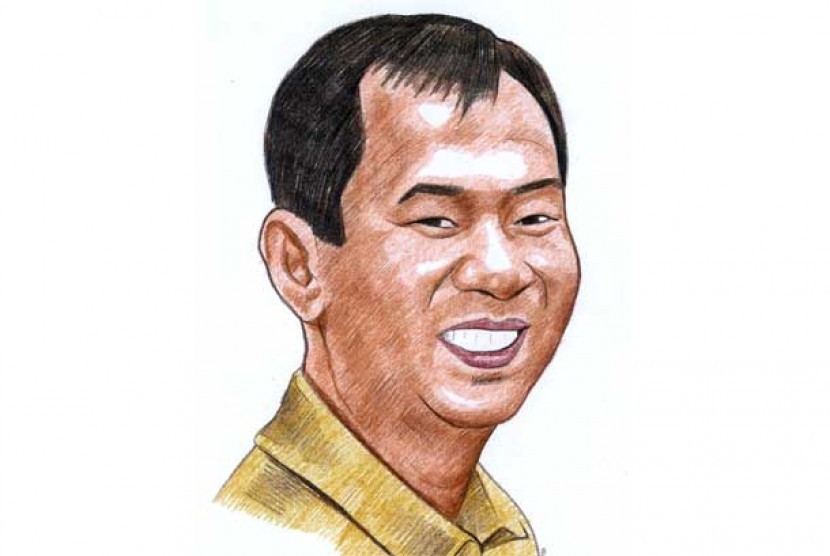REPUBLIKA.CO.ID, By: Nasihin Masha
Five countries controlled the world: USA, Australia, UK, New Zealand, and Canada. All the country came from one family, the United Kingdom. They work together wiretapping worldwide nations. They share the task, after which they distribute the results to each other. Definitely, on the next stage, the results will be distributed into their main partners. The goal, of course, was to support the progress and welfare of their nations.
Wiretappings in the world of intelligence and diplomacy were common, as long as it would not be uncovered. But the current spying activities were so special, because it was a collaboration of five countries. Thus there were parties that receive the special benefit from it. There was some sort of conspiracy. That's what makes the world slip into an emotional response. Several important and powerful countries showed their deep anger, as shown by Germany. Most countries responded relatively serious, as shown in Saudi Arabia.
Indonesia, a country known to have a nationalistic society, has such serious response, although its anger was creeping on slow process. Even the Indonesian hacker community [claimed] already reacted first. They hacked a number of websites belonging to the government and people of Australia. Apparently, Australian hackers could not be remaining silent. They [claimed] to retaliate by hacking sites owned by Garuda Indonesia Airways, Angkasa Pura Company, and Ministry of Education. To this end, the government continues to drown. Even the issue of hacking sites owned by Indonesia was denied. On the other hand, government also appealed to the Indonesian hackers stop the action. But then the situation was heated after the Foreign Ministers responded with diplomatic steps by calling the Indonesian ambassador in Canberra. At last the President did a press conference, which among other things threatened to halt some military cooperation.
Australia was looks to underestimate this issue. A pressure to Australian PM to apologize to Indonesia was unaccomplished. Indonesia-Australia relationship was always up and down. Australia had always been at the point of arrogance and aggressive. Many things have been done; published a White Paper which called the danger of the north, published White Paper on issues within Indonesia. Australian forces acted over acting when its troops landed in East Timor (now Timor Leste). Lastly 'its intervention' on the issue of domestic animal slaughter. Australia had always put himself above Indonesia. It's nothing wrong when Marty Natalegawa called it a "not good neighbor"; a noisy neighbor.
Indonesia's effort to become a self-sufficient country on meat was 'thwarted' by Australia. Indonesia's plan to open multiple sources of meat import was rejected by Australia. The plan was to avoid dependency on Australia. But it then confronted with scarcity of meat in Indonesia's domestic market supplied by Australians company. Indonesia finally capitulated because it's threatened by cessation of varied cooperation in other agricultural areas.
In global and regional politics, each country has its own partner. Each state also has its own projection, respectively. In that context, Indonesia has always projected as a supplier of cheap labor, natural resource providers, and country with large market. Indonesia was in a low caste. It's still the same position as in the cultuur stelsel period in the colonial era. Therefore, when the G-20 was formed in 2008, and Indonesia was included in the group, Singapore was showing its uncomfortable reaction. But due to the close relationship between President Yudhoyono and President George W. Bush, Indonesia's position remains secure. The birth of the Trans Pacific Partnership (TPP) was an effort to marginalize Indonesia's position once again. This kind of correction alliance was against APEC, one of which founded by Indonesia. The new alliance did not involve Indonesia. It were only 12 countries, namely the U.S., Australia, New Zealand, Canada, Japan, Singapore, Malaysia, Brunei Darussalam, Vietnam, Chile, Mexico, and Peru. Mostly former British colonies, similar to the five- state alliance on wiretapping.
To become a great nation was not easy. It must be pursued by a good global political struggle considering all the alliances and interests of each country. But the essence was the unity and integrity of each country. At this point Indonesia was facing difficulties. This country was broken down, interfered and divided so easily. Unity was not enough on the political level; the most important was in the economic level. To make Indonesia as a raw material producing nation was also difficult. We are forced to continue to be raw materials producer to benefit our closest neighbors. They enjoy timber, coal, gold, tin, iron ore, nickel, rattan, oil, palm oil business and so on. Then they re-export it to Indonesia and to end users; developed countries. At this point we have trouble in basic chemical industry, electronic industry, automotive, heavy equipment, and also electricity. They also supplied many other needs to Indonesia. Indonesian independence and progress was a threat to our neighbors.
We could not blame our neighbors. We also should not be angry or hate our neighbors. They were striving to advance their respective countries. They were struggling for the welfare of their nations. All we have to correct was our ability to unite, independent, and do a right and good planning. Without that ability, we will keep the same position as forced agriculture labor nation as it was in the Dutch colonial era. At that time we became a provider of cheap labor, natural resources, and as a market. Currently, we have just got our new independent politically, but not economically independent as well as on our ways of thinking. We just could govern our own country, but we could not make an advance state and a welfare nation. There's no time to argue, our natural resources were increasingly depleted.
Ed: M Irwan Ariefyanto


